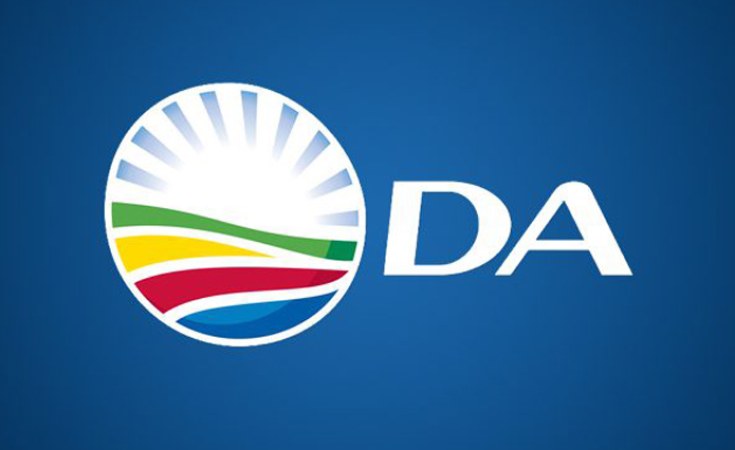South Africa, don't trust fake memo claiming opposition Democratic Alliance intends to undermine a coalition government
IN SHORT: An internal memo supposedly produced by South African opposition party the Democratic Alliance is a fake. Its source is unreliable and DA chair Helen Zille, who allegedly sent the memo, has confirmed that it is a fake.
South Africa's 2024 national election brought a major change for the country. For the first time since the first democratic election in 1994, the ruling African National Congress (ANC) failed to win an outright majority.
After the results were announced on 2 June 2024, ANC leader Cyril Ramaphosa invited other parties to form what the ANC is calling a government of national unity (GNU). This includes a larger group of parties rather than just one or two major parties in a coalition.
The GNU brings together the ANC, the Democratic Alliance (DA) and smaller parties. On 14 June, members of parliament reelected Ramaphosa as president of South Africa. Ramaphosa was sworn in on 19 July.
But users on X (formerly Twitter) have claimed that the DA intended to use a "coalition agreement" to manipulate the ANC. Photos of a printed memo with a DA letterhead have been shared on X, as well as on TikTok and on WhatsApp - where it was forwarded to Africa Check.
So what does the memo say, and is it from the DA?
'So badly written that it is actually an insult'
The memo is attributed to and apparently signed by Helen Zille, the chairperson of the DA's federal council. Its font and structure are similar to previous official letters sent by Zille. For example, it uses the same letterhead, signature, and rough layout as this official letter sent by Zille in 2022. It uses the same fonts, mostly the Arial typeface.
Nothing about the formatting indicates that it is a forgery, but the availability of letters with Zille's official letterhead and signature means that all these details would be very easy to copy. So how else can we verify the letter's authenticity?
An important source is Zille herself, who has said that the letter is a fake. She wrote on X: "It is so badly written that it is actually an insult, and bears no resemblance to the DA's position."
There are some grammatically awkward phrases in the memo, like "our support for Ramaphosa today [...] will return to us with full control of the South African political system". But the memo is largely free of the glaring spelling and grammatical errors that often give fake messages away.
So this is a good imitation, but there are still two major reasons to doubt the authenticity of the memo.
The first is its lack of detail. While claiming to set out a "unified negotiating strategy", the memo contains no details of the DA's actual objectives or negotiating strategy. It gives advice like "do not raise hot topics" without explaining what these "hot topics" are, and refers to "the levers of power we need" without explaining what these are. It is suspicious that the DA leadership is supposedly communicating through official letters which do not contain any details of the party's goals or "strategy".
And then there is the biggest issue with this claim: its source.
Apparent source of claim an 'influencer' previously linked to targeted social media campaign
A reverse image search revealed that the earliest version of the memo was posted by an X account with the handle @Ori_RSA. As well as the more widely shared images of the text of the memo, @Ori_RSA posted a photo of the memo lying on a table next to printed DA promotional material. But this doesn't prove that the letter was actually written by Zille, only that someone has access to a printer.
The photo is said to have come from "trusted sources". But the account has attributed other untrustworthy claims to unnamed "sources", including this tweet about the then uncounted election results and obvious jokes like this one about DA leader John Steenhuisen.
The @Ori_RSA account belongs to Oriphulusa Nyadzhiwa. According to his LinkedIn account, he is an environmental and geographical science student at the University of Cape Town.
Nyadzhiwa has been described as an "influencer" in a 2022 Daily News article, which referred to him as "one of the most famous influencers on social media" under his then handle "@Ori_Debig_Beats". (Replies to @Ori_RSA reveal that the account changed its handle and used to be called @Ori_Debig_Beats.)
In 2021, an investigation by the Atlantic Council's Digital Forensics Research Lab found that Nyadzhiwa's account was among the influencers amplifying a campaign targeting two South African banks. The campaign was largely driven by Sekunjalo Independent Media, which owns Independent Online (IOL), among other media organisations. The banks targeted, Absa and FNB, had since severed ties with Sekunjalo-owned companies.
The investigation found that the campaign was "amplified by journalists with links to Independent Media, clusters of sockpuppets, and a network of paid social media influencers".
Nyadzhiwa has described himself as an IOL "columnist" after its publication the Daily News published several opinion pieces written by him.
It should be clear that @Ori_RSA is not a trustworthy source. There is no evidence that Nyadzhiwa has any actual "sources" with access to private information about the DA and many other claims attributed to his "sources" are untrue. Nyadzhiwa's past involvement in coordinated, politically motivated social media campaigns makes him particularly unreliable.


